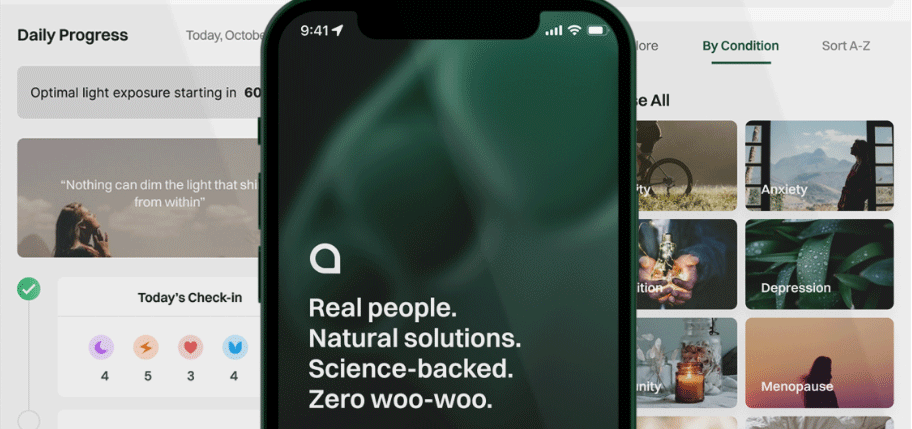From the Wreckage of a Broken Healthcare System, There’s an $864 Billion Opportunity
The U.S. healthcare system is broken.
In fact, according to 70% of U.S. adults, as noted by Time, the health care system is failing to meet their needs in at least one way. In addition, more than half of American adults grade the current healthcare system with a grade of barely a C.
“U.S. patients are tired of waiting weeks or months for appointments that are over in minutes. They’re tired of high prices and surprise bills. They’re tired of providers who treat them like electronic health record entries, rather than people. That could dissuade them from getting medical care at all—and if that happens, America may get a whole lot sicker than it already is. Patients are, in a phrase, burned out,” added Time.
And it’s only getting worse – with patients running out of patience.
High costs, ridiculous wait times, poor communication, and a severe lack of personalized care currently lead the growing list of issues.
And, as it is now, the impersonal nature of the system is a concern for many, with millions of patients feeling more like a number at the deli counter than a real person.
Making matters worse, over the past several years multi-billion-dollar pharmaceutical companies have been exerting considerable influence over the U.S. FDA, raising concerns the agency is putting pharmaceutical company profits and needs well ahead of patients.
However, that appears to be changing, triggering an opportunity that companies, like PanGenomic Health (CSE: NARA) are poised to benefit from.
For one, Robert F. Kennedy Jr.’s “Make America Healthy Again” movement is seeking to radically reshape the U.S. healthcare system by allowing for more approved treatments in the natural health space. This includes everything from peptides to psychedelics. And Big Pharma’s stranglehold on approved treatments could soon be fading.
Two, people are becoming far more proactive about their health, looking for ways to maintain their well-being, leading to their willingness to consider supplements. Plus, as mental health issues become less stigmatized, there’s even more interest in supplements.
Three, millions of frustrated Americans are now hunting for smarter, faster and more personalized care – available in many cases right on their smartphone.
Plus, consider this.
As these trends converge, they’re creating a potentially massive opportunity for the global digital health market. One that could see a $288 billion market triple in value by 2030 to about $864 billion.
Look at PanGenomic Health (CSE: NARA), for example.
PanGenomic Health is developing an intelligent, AI-powered wellness ecosystem designed to help users take control of their physical and mental well-being with precision treatments rooted in natural medicine, genomics and diagnostic insights.
In fact, the company’s Nara.ai platform is allowing users to leverage artificial intelligence to help them achieve personal well-being, and help them treat specific ailments on their own.
Nara is a mental health app that curates natural remedies for individuals to manage and improve their mental wellness. With personalized insights and evidence-backed resources, users can take back control of their mental health.
The Nara.AI platform will leverage the NARA app and Mujn diagnostic tools to make recommendation information available for the user or their health practitioner about personalized alternative health treatments, including initial dosages and dose changes from ongoing monitoring.
It’s essentially putting a personal health coach in your back pocket.
Driving further interest, the threshold for taking supplements is breaking down – especially with
Robert F. Kennedy Jr.’s “Make America Healthy Again” movement.
We also have to consider that fewer and fewer Americans can actually afford sky-high treatment costs – another key reason millions of Americans are interested in supplements.
Again, that’s substantial news for companies, like PanGenomic Health, which has positioned itself to monetize multiple parts of the consumer’s wellness journey:
-
- E-commerce: PanGenomic Health’s largest future revenue stream will come from its AI-powered product recommendation engine. As users shop for supplements, peptides and wellness solutions, PanGenomic receives a portion of every transaction.
- App Subscriptions: Users pay to unlock advanced tools inside the NARA app, such as ongoing tracking, deeper insights and premium guidance.
- Diagnostic Tools: Through MUJN, PanGenomic Health will generate revenue by offering subscription and per-use pricing on its biomarker tracking hits.
With a market cap of just roughly $2 million CAD, PanGenomic is still trading at a valuation well below its peers, and offers significant upside potential for investors.


